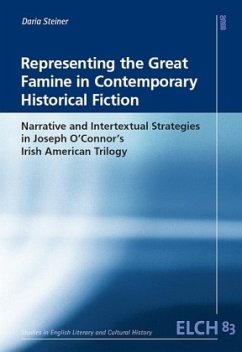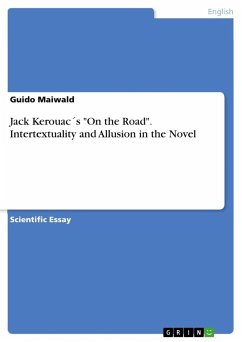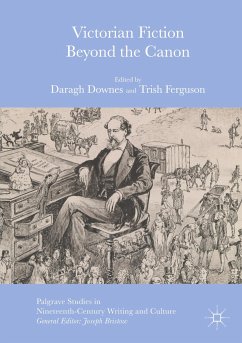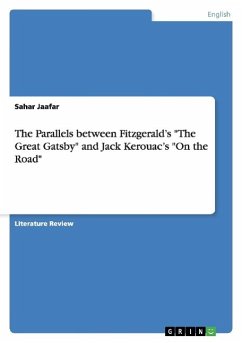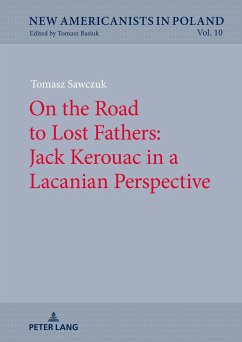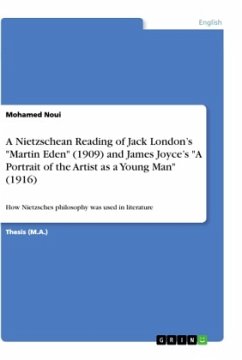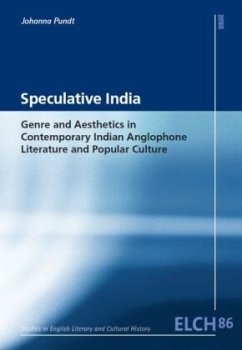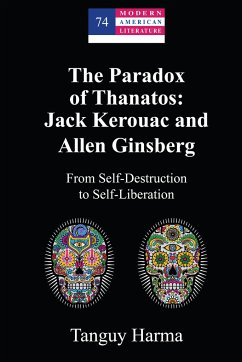Nicht lieferbar

De/mythologizing Jack the Ripper
Fictional Appropriations as a Metanarrative of Constructing and Reading Serial Murder
Versandkostenfrei!
Nicht lieferbar
Jack the Ripper cannot be contained. This much rings true for the historical criminal, yet in another sense also applies to the popular cultural counterpart. Despite their cultural pervasiveness and no lack of so-called "final" solutions offered by Ripperologists and creative writers alike, the Ripper remains defined by an almost quintessential elusiveness. De/mythologizing Jack the Ripper approaches this paradox by foregrounding its imaginative rather than its criminological dimension. Considering the lingering condition of mystery as both epistemological problem and invitation to creative po...
Jack the Ripper cannot be contained. This much rings true for the historical criminal, yet in another sense also applies to the popular cultural counterpart. Despite their cultural pervasiveness and no lack of so-called "final" solutions offered by Ripperologists and creative writers alike, the Ripper remains defined by an almost quintessential elusiveness. De/mythologizing Jack the Ripper approaches this paradox by foregrounding its imaginative rather than its criminological dimension. Considering the lingering condition of mystery as both epistemological problem and invitation to creative potential, this part literary, part mythographic study investigates Ripper fiction as adaptations and thus interpretations of an already inherently fragmentary, indeterminate historical text lacking canonical authority into a highly intertextual culture-text which defies containment by decade, medium, genre, or often any sense of fidelity to historical reality.
With particular focus on early narratives and more recent treatments, comparative readings chart the ways in which fictional representations of the Ripper give meaning to mystery. De/mythologizing draws on the multi-faceted concept of myth to shed new light on the development of Ripper narratives as 'culturally significant stories' in early group-texts The Lodger and Yours Truly, Jack the Ripper through almost opposing etiological and symbolic principles. Later intrusions of intertexts Sherlock Holmes and Dracula serve another tension, examined as mechanisms to stabilise meaning for the Ripper by external influence, or in turn to destabilise traditional order in those sources. Following in this deconstructive angle, postmodern 'dissections' of history From Hell and Limehouse Golem are analysed as metanarratives of the collapse of singular significance itself inside the Ripper myth - as well as the desire to (re)establish meaning nonetheless.
Contents
Acknowledgementsxi
1. Introduction: Reflections on a Cultural Phenomenon1
1.1 Research interest: a cultural puzzle and its narrative possibilities2
1.2 The corpus: in preparation of a postmodern dissection of the textual body5
1.3 State of research: vectors of investigation versus areas of interest, and a case for interdisciplinary Ripper Studies12
1.4 Methodology and analytical perspective: close readings versus intertextual, mythographic approaches25
2. In Pursuit of the Unbound Text: Intertextuality, Semiology and Mythicity as Interconnected Frameworks29
2.1 Defining and confining the Ripper-text: fallacies of a Final Solution31
2.2 Historiography: circumscribing history with narrative structure36
2.3 Mythography: studying subjects and functions of myth41
2.4 Semiological Mythologies: descending from the sacred to the mundane46
2.5 Intertextuality: aggregating from tracer to the culture-text54
2.6 Mythicity: bridging the ontological gap60
2.7 Synthesis: mythical intentions in literature65
3. Foundations of the Ripper Mythology: The Historical Case, its Context, and its Media Discourse67
3.1 Newspaper narratives: the mass dissemination of speculative prototypes71
3.2 'Fan mail': character creation as collaborative effort78
4. Where Myths Are Born: From Rumours to Urban Legends of The Curse Upon Mitre Square80
4.1 The Curse Upon Mitre Square: A.D. 1530-188882
4.2 A resonance of intertexts: invoking a "Nemesis of Neglect"85
4.3 Ghosts: metaphors of rumour as haunting presence91
4.4 Mythopoeia: evolving from rumour to myth94
4.5 Conspiracy discourse: connecting dots across fact and fiction102
4.6 Psychogeography: locating legends108
4.7 An outlook: forgotten histories and prophecies114
With particular focus on early narratives and more recent treatments, comparative readings chart the ways in which fictional representations of the Ripper give meaning to mystery. De/mythologizing draws on the multi-faceted concept of myth to shed new light on the development of Ripper narratives as 'culturally significant stories' in early group-texts The Lodger and Yours Truly, Jack the Ripper through almost opposing etiological and symbolic principles. Later intrusions of intertexts Sherlock Holmes and Dracula serve another tension, examined as mechanisms to stabilise meaning for the Ripper by external influence, or in turn to destabilise traditional order in those sources. Following in this deconstructive angle, postmodern 'dissections' of history From Hell and Limehouse Golem are analysed as metanarratives of the collapse of singular significance itself inside the Ripper myth - as well as the desire to (re)establish meaning nonetheless.
Contents
Acknowledgementsxi
1. Introduction: Reflections on a Cultural Phenomenon1
1.1 Research interest: a cultural puzzle and its narrative possibilities2
1.2 The corpus: in preparation of a postmodern dissection of the textual body5
1.3 State of research: vectors of investigation versus areas of interest, and a case for interdisciplinary Ripper Studies12
1.4 Methodology and analytical perspective: close readings versus intertextual, mythographic approaches25
2. In Pursuit of the Unbound Text: Intertextuality, Semiology and Mythicity as Interconnected Frameworks29
2.1 Defining and confining the Ripper-text: fallacies of a Final Solution31
2.2 Historiography: circumscribing history with narrative structure36
2.3 Mythography: studying subjects and functions of myth41
2.4 Semiological Mythologies: descending from the sacred to the mundane46
2.5 Intertextuality: aggregating from tracer to the culture-text54
2.6 Mythicity: bridging the ontological gap60
2.7 Synthesis: mythical intentions in literature65
3. Foundations of the Ripper Mythology: The Historical Case, its Context, and its Media Discourse67
3.1 Newspaper narratives: the mass dissemination of speculative prototypes71
3.2 'Fan mail': character creation as collaborative effort78
4. Where Myths Are Born: From Rumours to Urban Legends of The Curse Upon Mitre Square80
4.1 The Curse Upon Mitre Square: A.D. 1530-188882
4.2 A resonance of intertexts: invoking a "Nemesis of Neglect"85
4.3 Ghosts: metaphors of rumour as haunting presence91
4.4 Mythopoeia: evolving from rumour to myth94
4.5 Conspiracy discourse: connecting dots across fact and fiction102
4.6 Psychogeography: locating legends108
4.7 An outlook: forgotten histories and prophecies114




